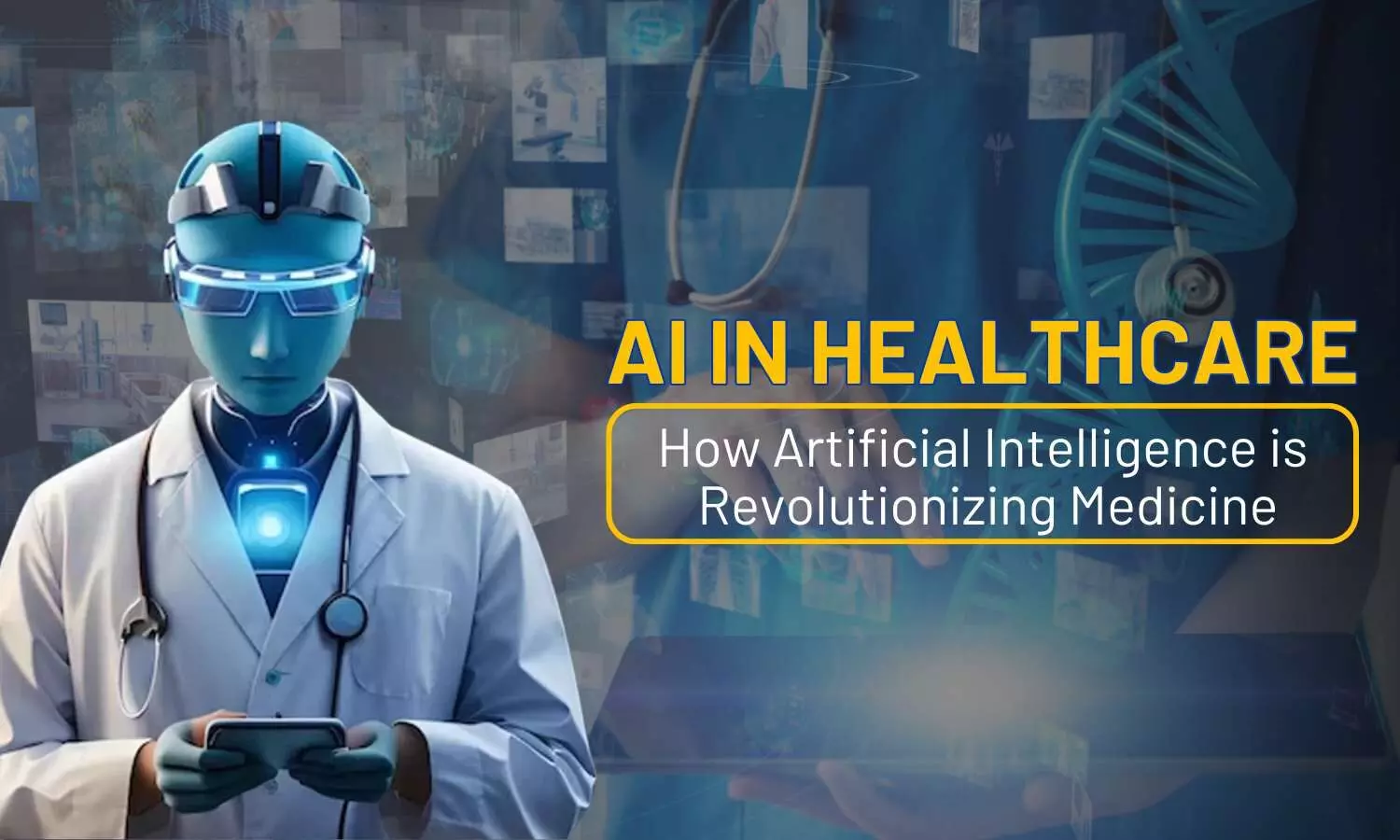Revolutionizing Healthcare: AI Innovations in Medicine & Research

Discover how AI innovations are transforming healthcare and medical research, improving patient care and streamlining processes
Artificial Intelligence (AI) has transformed almost all industries, and healthcare is no different. AI is reshaping how medical professionals diagnose, treat, and even prevent diseases. From streamlining administrative tasks to accelerating medical research, AI is driving a new era of efficiency, accuracy, and personalized care.
In this article, we will explore the incredible innovations AI is introducing in medicine and research. Whether you're a healthcare professional, patient, or just curious about the future of medicine, this journey into AI's impact on healthcare will leave you thinking: Could AI be the answer to a healthier tomorrow?
What is AI in Healthcare?
AI in healthcare refers to the use of artificial intelligence (AI) technologies, like computers and software, to help doctors, nurses, and other healthcare professionals improve patient care. AI can analyse large amounts of data, like medical records, faster than humans, helping to detect diseases, suggest treatments, or even predict health issues before they happen. It makes healthcare more efficient and personalized, often leading to quicker diagnoses and better outcomes for patients.
The potential applications of AI in healthcare are vast. Some of them include:
- Diagnostics and Medical imaging
- Drug discovery
- Personalized treatment plans
- Predictive analytics for diseases
- Administrative tasks like scheduling appointments and billing
How does AI work in Medicine?
AI systems analyze large datasets, such as electronic health records (EHRs), genetic information, or medical imaging, and identify patterns that might be invisible to human doctors. Using these insights, AI can assist healthcare professionals in diagnosing conditions faster, predicting health outcomes, and even suggesting treatment options tailored to individual patients.
Let’s make this more relatable. Imagine visiting a doctor for a routine check-up, and they use an AI tool that instantly analyses your medical history, identifies risk factors for diseases, and suggests preventative treatments.
Key AI Medical Innovations You Should Know
Let’s explore some specific areas where AI is making a significant impact in medicine and medical research:
1. AI in Diagnostics: Early and Accurate Disease Detection
One of the most promising applications of AI in healthcare is its ability to assist in medical diagnostics. Traditional diagnostic methods are often time-consuming and prone to inaccuracies due to human errors. However, AI algorithms can process vast datasets, including medical images like x-rays, MRIs and CT-scans to provide fast and accurate diagnoses.
For example:
- AI in Radiology: AI tools can scan images for abnormalities such as tumours or fractures, providing doctors with detailed insights and reducing diagnostic errors.
- AI in Pathology: AI-powered systems can analyze biopsy samples, identifying cancerous cells with higher precision and speed.
2. Personalized Treatment Plans
AI is changing how doctors treat patients by personalizing treatment plans. By analysing a patient’s unique genetics, lifestyle, and health history, AI can suggest treatments and therapies that are specifically tailored to their needs.
For instance, AI is playing a pivotal role in the rise of precision medicine, where treatments are tailored to an individual's specific genetic code. In cancer treatment, for example, AI can identify which therapies will be most effective for a particular patient's cancer type, minimizing side effects and maximizing efficacy.
3. AI in Surgery
Robotic-assisted surgeries have gained significant attention in recent years, thanks to the integration of artificial intelligence in medicine. AI in surgery helps doctors perform operations more precisely and safely. It assists with planning, guiding tools, and even performing tasks like stitching. AI can analyze data quickly, helping surgeons make better decisions. This technology improves patient outcomes and reduces recovery times, making surgeries more efficient and accurate.
4. AI in Medical Research
AI in medical research is advancing our understanding of diseases in ways we couldn’t have imagined just a decade ago. AI in medical research helps doctors and scientists discover new treatments faster. It analyses large amounts of data, such as medical records and research studies, to find patterns humans might miss.
For example, In the field of genomics, AI is being used to analyze DNA sequences, which could pave the way for new treatments for genetic disorders. Additionally, AI can help predict disease outbreaks by analysing patterns of illness and environmental factors, allowing healthcare systems to better prepare for potential public health crises.
Benefits of AI in Healthcare
The implementation of AI in healthcare offers numerous benefits:
1. Improved Accuracy - AI systems are highly efficient at processing large amounts of data, reducing the likelihood of diagnostic errors
2. Faster Treatment - By speeding up diagnosis and drug discovery, AI ensures patients receive quicker and more effective treatments
3. Cost-Effectiveness - Automated systems can cut down on labour costs and streamline workflows, reducing the overall expense of healthcare
4. Increased Access - AI tools are making healthcare more accessible, especially in remote areas where medical professionals may be in short supply
Future of AI in Healthcare
As AI medical innovations continue to evolve, the future of healthcare looks incredibly promising. Experts predict that AI will be integral in nearly every aspect of healthcare within the next decade, from routine check-ups to complex surgeries and drug discoveries.
Some key areas to watch for AI innovations include:
- AI in Telemedicine: AI-powered virtual healthcare assistants could guide patients through diagnoses, treatment, and follow-up care without needing a doctor in person
- AI and Mental Health: AI could play a critical role in detecting early signs of mental health disorders and offering support through chatbots and virtual therapy
AI innovations in healthcare are revolutionizing the field, offering new ways to diagnose diseases, personalize treatments, and accelerate medical research. While AI brings exciting possibilities, it also poses ethical and practical challenges that will need to be addressed as technology continues to evolve.
As we move forward into an AI-driven era of medicine, one question remains: Are you ready for the AI healthcare revolution?

















